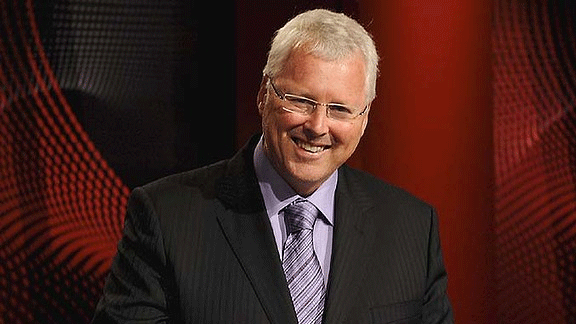Q&A shows what’s wrong with official politics

We interrupt normal programming to bring you politics from the street. That was what happened when the ABC’s Q&A panel was rendered speechless for two delicious minutes on 5 May by a group of rowdy students.
Their actions struck a chord for many reasons, not least of which is that we’re fed up with the banal drivel that somehow still passes for “robust debate”.
In a lot of ways, the show’s panel format epitomises what is wrong with Australian politics. Far from creating debate, it highlights how little real debate occurs. Take the episode in question. Viewers were treated to Liberal federal education minister Christopher Pyne, Institute of Public Affairs president John Roskam and Pallavi Sinha – whose claim to be a “human rights” lawyer is as suspect as Tim Wilson’s credentials as human rights commissioner.
Under the guise of “debate”, these conservatives chewed up airtime persuading us that the richest 2 percent of income earners pay too much tax and that there is too much public funding of scientific research. John Roskam lamented the fictional injustice of millionaires going to the doctor for free – as if they’ve ever spent hours in the waiting room of a bulk billing clinic – to sidestep the genuine injustice of the elderly and injured agonising over whether they can afford the incoming GP fee.
Support for these ideas is marginal beyond the exclusive memberships of the Australian Industry Group and Business Council of Australia and their think tank adjuncts like the HR Nicholls Society or the Institute of Public Affairs, all of which feature heavily on Q&A panels. The students’ chant, “No cuts, no fees, no corporate universities!”, is far more representative of public opinion.
It is not only the students who are condescended to. Before each episode, producer Peter McEvoy takes the stage to explain that “the show is about manners and respect, never about who can shout the loudest”. Be polite and put up your hand, says the headmaster.
This is exactly how ordinary people are supposed to behave toward their managers, or in politics toward the so-called “experts”. Democracy extends to the occasional opportunity to ask a question, but you are not expected or desired to proffer an answer. It’s Tony Jones’ democracy writ large.
In a panel on education, not a single student, student representative or educator was invited to put their views. It was left to a comedian – who did a valiant job of making Pyne’s smirk quiver – to stick up for them.
McEvoy says Q&A “offers engagement to the average person in the street who would normally not enjoy access to the politicians and community leaders who make the decisions that affect their lives”. The fact that elected leaders can be so thoroughly sheltered from real engagement with average people highlights the inadequacy of liberal democracy as we know it. No wonder so many have disengaged from politics.
McEvoy bemoans that the students gave away their chance to “‘persuade and influence” through arguing their case by “robbing” the audience of their “right” to view “reasoned and polite debate”. For liberals of the small ‘l’ variety, it is the exchange of ideas that drives change, and so the forum for that to occur is sacred.
But on the question of fee hikes, or for that matter a GP fee or lowering the pension rate, it’s not so much reasoned debate as bitter experience that informs people’s responses. Their ideas are formed through watching their grandparents already struggle to live on the pension, worry about how a friend with a chronic illness will afford to get the health care they need or questioning how their children’s lives will be affected by starting life after uni with a debt in excess of $50,000.
Where the human rights lawyers or the ranks of the commentariat fail to connect is that people don’t need persuading; they need to know how we’re going to stop it.